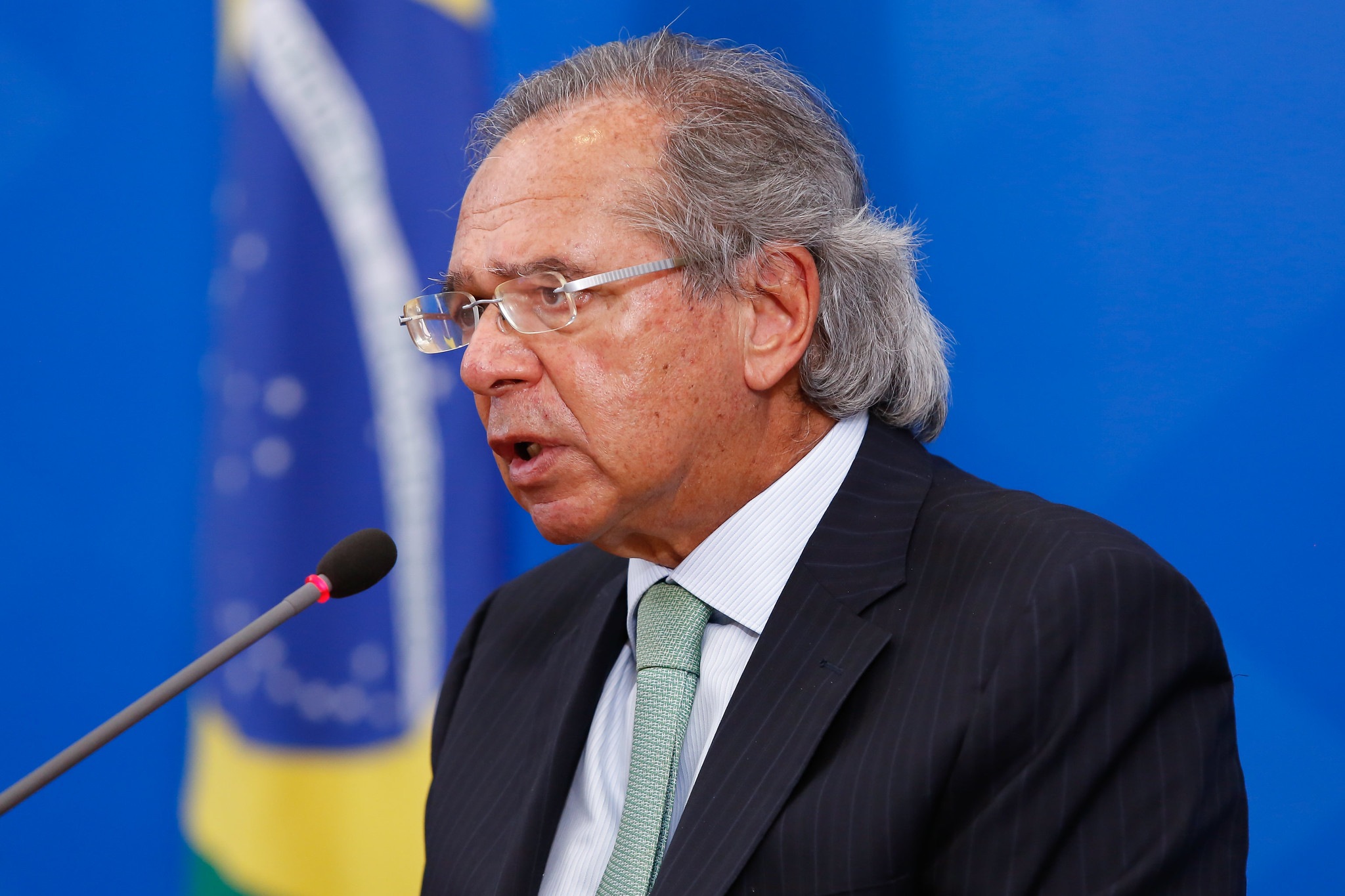RIO DE JANEIRO, BRAZIL – “We’re heading towards liberal democracy, we’re going to open up the economy, we’re going to simplify taxes. We’re going to privatize, we’re going to decentralize resources to states and municipalities.” These pledges by the new Minister of Economy Paulo Guedes in his inauguration speech on January 2nd, 2019, drew applause from the audience. However, a year and a half later, the pledged “liberal shock” is still on paper.

Although he used the term “liberal” eight times that day, there has been little progress in that direction. Of the three pillars announced for the economic liberalization – Welfare reform, taxes, and privatizations – only the change in pensions went ahead, although without the capitalization scheme (a kind of savings by workers to ensure retirement in the future) advocated by the Minister.
This week, after much delay, Guedes only sent Congress the first part of his tax reform. If in his inaugural speech he talked about unifying “seven, eight taxes”, the bill submitted to Congress joined only the PIS and the COFINS (Program of Social Integration and Contribution for the Financing of Social Security) – an idea long studied in the Federal Treasury – and created the Social Contribution on Goods and Services Transactions (CBS).
“Guedes follows the Bolsonaro pattern. He doesn’t do much. There’s a lot of talk, but not much result,” said economist Simão Davi Silber, professor at the University of São Paulo (USP).
Experts heard by Estadão newspaper mentioned, among the reasons for the lack of progress of the proposals mentioned by Guedes, the delays in the design of measures, a lack of political coordination, and the creation of expectations caused by the Minister’s pledges lacking support in today’s reality.
In addition, the challenge in gathering support for the agenda exposes a conflict that is the government’s hallmark. The liberal plans are contrary to the ideas of the military wing, which advocates an increase in public investment, the maintenance of state-owned companies, and protectionist measures for domestic industry. Moreover, it is difficult to pass bills in Congress for lack of a strong and loyal party base – which prevented the approval of the Pension Fund’s capitalization model, for instance.
Finally, although President Jair Bolsonaro says that Guedes has free rein in the economy, in practice, the President himself vetoes the progress of some issues, among them privatization of the Banco do Brasil.
For the executive director of the Livres Institute, Paulo Gontijo, Guedes lacks political support to carry out the liberal agenda. “This government has a formulation, coordination and execution problem. The formulation of tax reform was bad. In the FUNDEB (Fund for Maintenance and Development of Basic Education and Valorization of Education Professionals) vote, the coordination was poor. When there is a well-designed proposal, such as the administrative reform, it doesn’t go ahead because it faces entrenched power groups,” he says.
Brazil Cost
The pledged economic opening, which would be parallel to the reduction of the so-called “Brazil cost”, has not progressed either. There have been occasional reductions in import taxes, which do not need a Mercosur endorsement. But plans to reduce the bloc’s Common External Tariff (TEC) have not gone ahead and it has become even more difficult to carry them out with the pandemic, which has had a major impact on Brazilian industry.
Silber, an expert in international economics, recalled that even the greatest achievement in the foreign area, the agreement between Mercosur and the European Union, closed in mid-2019, is in danger of sinking due to the country’s negative image in the environmental area. “In addition, given the military influence within the Bolsonaro government, there is a national developmentalist outlook that is opposed to this opening discourse,” Silber says. “There is a latent conflict within the government itself, and Guedes has been very timid.”
In addition to Pensions, one of the points where progress was achieved in liberalizing the economy was the so-called law of economic freedom, which reduced red tape, such as the need for permits to operate stores. However, economists consider this a side point in the liberal agenda.
The Ministry of Economy said that the portfolio, “under the leadership of Paulo Guedes, has been designing and implementing initiatives aimed at ensuring the set of reforms needed to resume economic growth since the inception of President Jair Bolsonaro’s administration.”
According to the Ministry, “robust” actions and programs have been implemented on several fronts. The portfolio listed measures such as the Pension Reform, the Mercosur/EU agreement, the provisional measure of economic freedom, the agreement to open refineries, and the pledged cheap energy shock. The portfolio also emphasized the launching of the Digital Worker’s Record Book and the digitalization of public services among the actions taken by the Ministry.
Source: O Estado de S. Paulo

